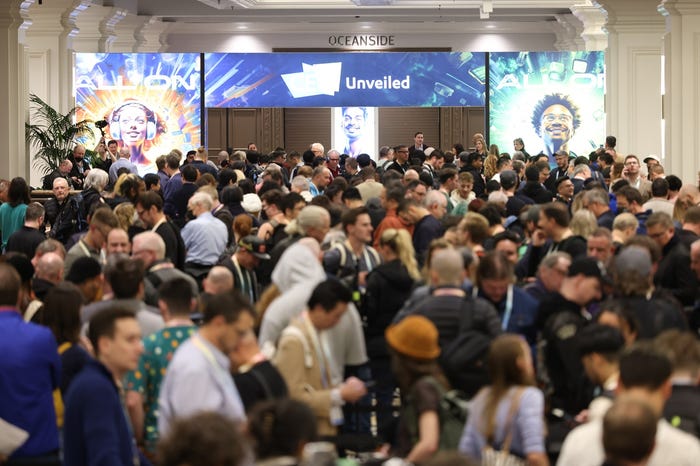
Connects decision-makers and solutions creators to what's next in quantum computing
How Quantum Fits With AI, Applied Intelligence Live! Austin 2023
Science fiction predicts three outcomes for AI: Terminator, I Robot or Elysium

Quantum computing and AI are a natural fit and organizations will increasingly use them together to solve business problems. While many people worry about the unintended consequences of emerging technology, foreseeing a Terminator-style “rise of the machines,” history demonstrates that they are more likely to introduce a societal shift.
According to William “whurley” Hurley, founder and CEO of quantum company Strangeworks, the world, including the human brain, is quantum mechanical.
“I believe you need a quantum mechanical underpinning to have a true AI,” he said. “What we have today is very exciting, really big automation, a lot of interesting things and convolutional neural networks and other things. But the real power lies in quantum infrastructure and AI software working together.”
Romi Mahajan, CEO of Nuclear Fusion Company ExoFusion, described quantum computing and AI as conjoined twins.
“We're coming up to the 100th anniversary of the discovery of quantum mechanics, which changed the paradigm from Newtonian mechanics. And that, of course, arose from a variety of intellectual foment. We’re once again in a fascinating time 100 years into quantum,” he said.
Michael Shepherd, senior distinguished engineer and chief technology officer at Dell Technologies said that while artificial intelligence is predominantly using graphics processing units (GPU), quantum computing units (QPU) have now entered the mix.
“Each of those is better at doing one particular task versus another. That dynamic between artificial intelligence and where QPUs will fit among the CPUs, GPUs and the different computing paradigms is really exciting.”
Unintended Consequences of AI and Quantum
Even with the best of intentions technology shifts often introduce unintended consequences.
“Because of these unintended consequences, you have to ask profound questions,” Mahajan said. “It’s our responsibility to ask tough questions and not be dismissive of any point of view. It’s not binary A or B, some consequences are very beneficial, but other consequences could be bad. We have to parse through those and be honest.
According to Shepherd, there are good actors and bad actors; people who are focused on enabling technology for the good of the planet, and the people who intend to use it for bad.
“Think about the progression of humanity and the technologies that have come along and changed or replaced jobs. How many of us are farmers? The reality is life is changing and we all have to adapt,” he said.
“In 2018, I challenged our entire executive board in our services division to be lifelong learners because that is the one thing that will keep you ahead. AI is not going to replace your job, but people using AI will. If we keep that in mind that as we learn to utilize it just like we utilize a calculator or a car it can enable and empower people, especially those that are not technically savvy, to do more and be more imaginative and do more productive things.
Terminator, I Robot or Elysium
According to whurley, science fiction predicts three outcomes of AI.
“There's the Terminator, it kills us. There’s iRobot, it makes great pets. And then there's Elysium, it creates a class system. Every bad outcome you can think about fits into one of those categories,” he said.
“The realistic one that we should be worried about is a class system emerging where there are the workers that work with AI and those who don't have it and the wealth transfers in one direction and not the other.”
He went on to put the pushback against technology into historical context, from Plato and Socrates’ arguments against writing to bank tellers protesting the introduction of ATMs in the 1980s. The latter took away banks’ money-counting function, but instead, they originated new services for customers.
“In any prediction about future of technology, we always put a pessimistic angle on it,” said whurley. “When you hear all this Terminator talk, why would a machine get angry about things? Why would it want all of the resources?
“I preach about unintended consequences all the time but I think we need to balance it right. There has to be a nice balance.”
About the Author
You May Also Like
.png?width=100&auto=webp&quality=80&disable=upscale)
.png?width=400&auto=webp&quality=80&disable=upscale)




